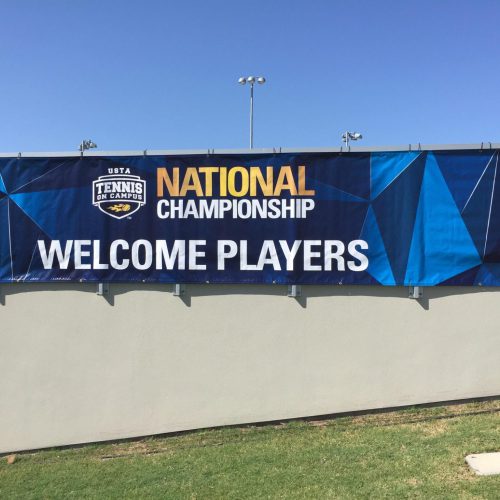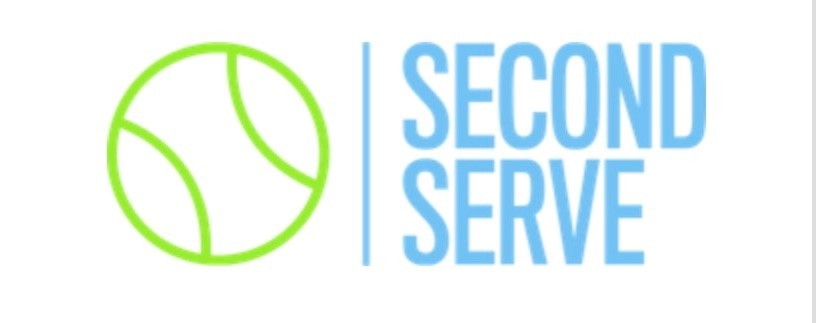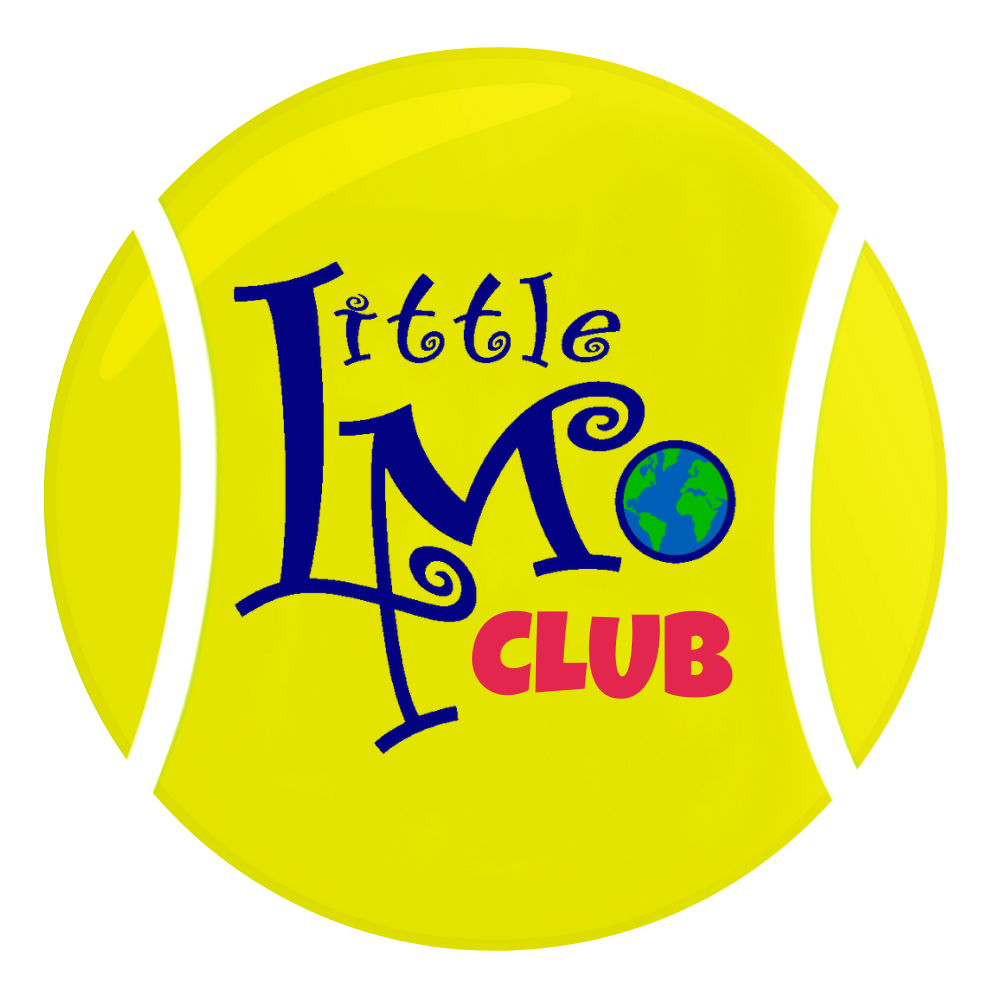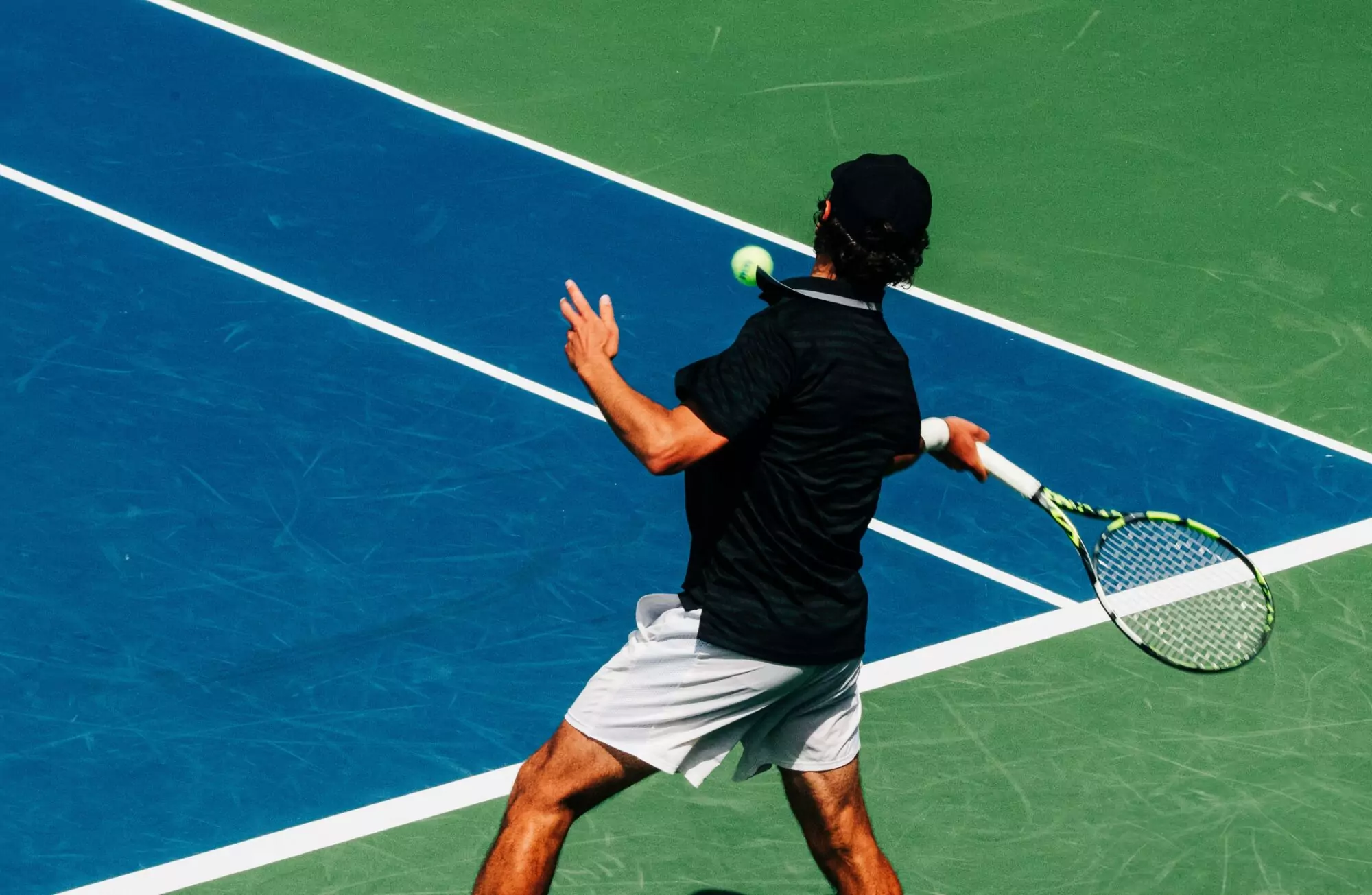
Today’s Q&A is with Jerry Hendrick. For more than 20 years, Jerry has been a college professor, college tennis coach, and father. He has three children and all of them have grown up on the court. As a result of a family health crisis, Jerry is now also an author [please see I Love You (But You Should Have Won!)].
Jerry’s oldest child, Ashley, was diagnosed with bone cancer (osteo sarcoma) when she was 16, and this led to a year-long battle as an in-patient at DeVos Children’s Hospital in Grand Rapids Michigan. As a result of her illness and the family’s desire to improve her likelihood of surviving, they chose to have Ashley’s left leg amputated above the knee. Ashley ultimately survived this surgery and the treatment of her illness and has returned to tennis with a prosthetic leg. She is currently playing #3 doubles on her college team and has a winning record.
ParentingAces: What is your background in terms of tennis and coaching, including your own tennis playing history as well as that of your kids?
Hendrick: I played #1 singles and doubles for Spring Arbor University (class of 86). I have taught tennis at various private clubs/resorts and have also coached both boys and girls. My first coaching experience was when I was hired as the head girls tennis coach at Lumen Christi High School. I coached the girls varsity and JV team for two years and the varsity went undefeated both years. I have been the head coach at Aquinas College (men) for 21 seasons. Our teams have been ranked among the top 25 in the US (NAIA) each of the past 14 years. This year’s team stands at 21-1 and is ranked #13 in the US. Most remarkable is that our top six consists of entirely US players. My all-time record as a coach at Aquinas is 379-119. My wife Beth also played college tennis (Olivet Nazarene) and our three children all play as well. My daughter Ashley is about two weeks from graduation and will play her last match as a member of the Aquinas women’s team one week from Friday. After surviving cancer and the amputation of her left leg she was able to return to tennis and make it into her high school and college line-up using a prosthetic. My son Aaron was a Top 20 USTA Region player. He was also the Michigan High School State Champion at #1 singles. Last year as a freshman at Aquinas he played #1 singles and doubles and set a school record for wins in one season. Aaron was honored as an All-American and was voted the ITA National Rookie of the Year. He is now a sophomore and is ranked #23 in the nation in singles and #7 in doubles. My youngest son Austin is a sophomore in high school. He plays #1 singles for his team and was voted all-conference this past season.
PA: In your book, you talk about The Beast. Please tell me more about how you arrived at that description – was it something that happened to you personally or something you saw from other sports parents?
JH: The Beast is something I know and experience personally but I have also witnessed it in many other tennis parents. It is essentially the pride we all have in our children that has been allowed to warp and distort our perspective. We begin to think about our child differently based on how he or she plays. We then find ourselves treating our child differently based on his or her last performance. In the beginning we want our kid to win for his or her sake. We assume the win will be good for their self-esteem and will provide a reward for their hard work and incentive to keep practicing. Over time however as our child moves up the ranks, we as the parent start to internalize the wins and losses and start seeing them as more of a reflection of ourselves. He’s my son (or daughter), and he’s making me look bad as his dad when he plays so poorly. That’s how the beast affects our thinking.
PA: How do you keep your own Beast under control, both as a coach and as a parent?
JH: It’s easier as a coach as I do not feel the same obligation to primarily love and support my player as I do as a father. As a coach we emphasize winning and most of what we do in practice and in our matches is intended to help the guys accomplish this task. While we do care about many of the same things a parent cares about with regard to our players, there is no doubt that the emphasis is different. With parenting it is harder. The article I sent you in my previous email [click here to read it] includes a few suggestions taken from my book for helping a parent tame their beast. Most successful strategies require at least some level of disengagement, or detachment on the parent’s part regarding their child’s competition.
PA: How did your family’s experience dealing with the scare of Ashley’s cancer affect your behavior as both a sports parent and as a coach?
JH: The year my family spent dealing with cancer was the most significant year of my life. Everything was changed on the day Ashley’s cancer diagnosis was made. None of us cared about tennis anymore, even though it had accounted for such a great portion of our lives. All we cared about was doing whatever we could to see our daughter live. We wanted her to get better. We wanted her to be healthy again. We wanted her to be happy. We hoped she’d get to live a long and wonderful life. Tennis never entered into the equation until we were out of treatment and able to start moving beyond all of those greater fears. It was then that we started thinking about helping her return to the courts. Once she made that decision, she went after it full time and the two of us began the slow and sometimes discouraging journey back. After she was able to return to her team the feelings were quite mixed to be honest. Sometimes when I watched her play I was moved at how far she had come and I felt an overwhelming thankfulness to God for bringing her so far. Other times when I watched her play I felt depressed and even angry. It hurt to see her struggle physically to get to balls. It also hurt to see how poorly she played and moved compared to how well she had played and moved before she was sick. These negative feelings and emotions have decreased a lot over the months and years since she completed her treatment, but I would be lying if I told you they have completely left me.
PA: Finally, what should other parents and players take from Ashley’s experience? What are you hoping your book will teach the rest of us?
JH: My desire is to help parents appreciate their children more and to understand that their child’s athletic (or other) accomplishments are really not all that important in the greater scheme of life. I want to help parents better love and support their children so that they are able to cultivate a relationship that will last the rest of their lives as opposed to a relationship that is built upon a child’s athletic participation. I want to help parents learn some of the things that I have learned without having to go through everything I have gone through. That’s really all I want.
For more information on Jerry and his family’s experience, visit the following links:
MLive Blog Post on Ashley Hendrick















Comments